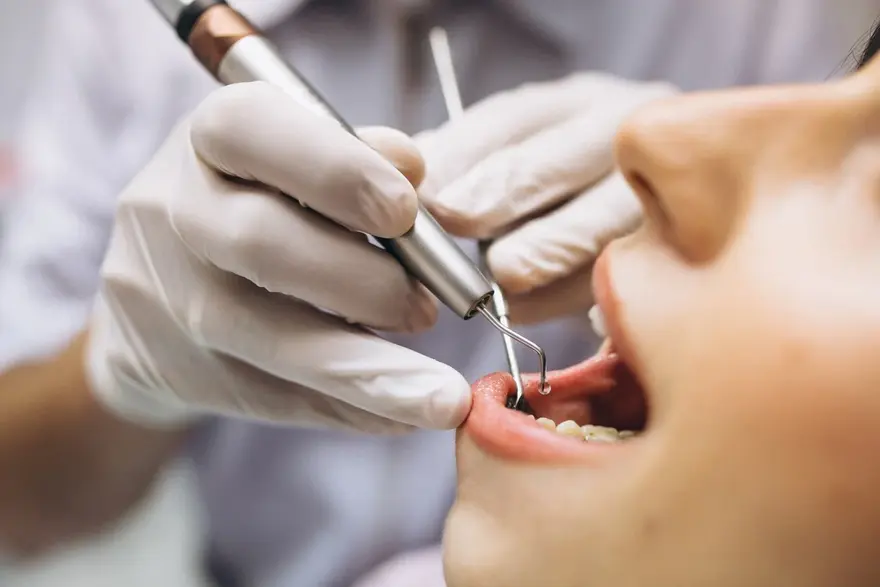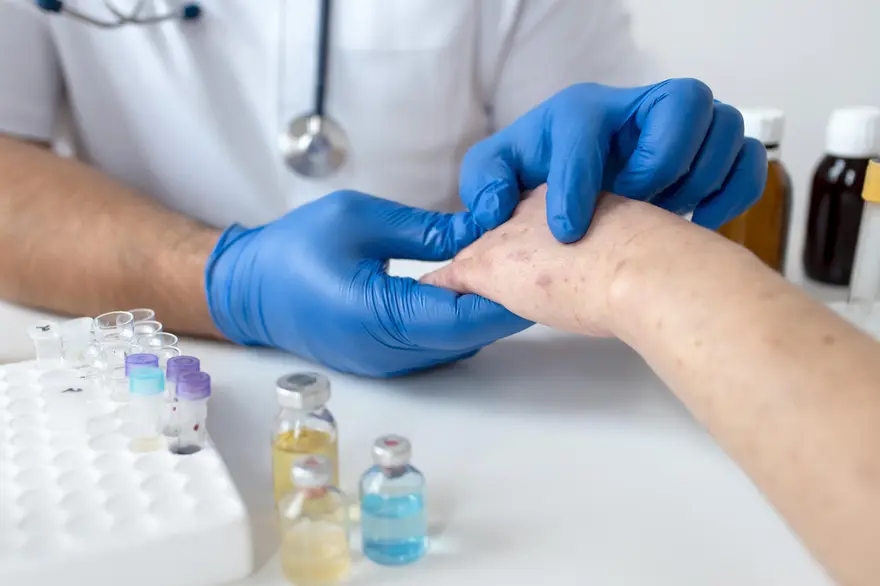Preventive Healthcare
Understanding Epithelial Cells in Urine: Tests, Ranges, and Causes
68810 Views
0

Epithelium is a type of body tissue that borders cavities and hollow organs. It creates the covering on your body's exterior surfaces, and makes up most of the tissue in glands. Depending on where in the body it is found, epithelial cells can perform various tasks, such as absorption and protection.
What are Epithelial Cells?
Epithelial cells are one of the four basic tissue types in the human body. They form a layer covering all internal and external body surfaces, including the skin, the lining of the digestive system and the blood vessels. Epithelial cells are also found in glands, where they produce and secrete substances such as hormones, enzymes, and mucus.
Epithelial cells are tightly packed, with very little intercellular space between them. It helps form a barrier protecting the body from harmful substances and pathogens. Epithelial cells can also be specialised to perform various other functions, such as absorption, secretion and filtration.
Types of Epithelial Cells
There are three main types of epithelial cells:
- Squamous epithelial cells are thin and flat and are found in areas where the surface needs to be smooth and protective, such as the skin and the lining of the blood vessels.
- Cuboidal epithelial cells are cube-shaped and found in areas where secretion and absorption occur, such as the kidneys and the glands of the digestive system.
- Columnar epithelial cells are tall and column-shaped and found in areas where absorption and protection are important, such as the lining of the intestines and the respiratory tract.
What is an Epithelial Cells in Urine Test?
An epithelial cells in urine test is a part of a urinalysis, a test that measures different substances in urine. It is a simple and non-invasive test used to diagnose and monitor various medical conditions, including urinary tract infections, kidney disease and cancer.
The type of epithelial cells found in urine can also help to diagnose the underlying cause.
Epithelial cells in urine test may be ordered if a patient has symptoms of a urinary tract infection, such as frequent urination, pain when urinating or fever. The test may also be ordered if a patient has other symptoms that suggest kidney disease, such as back pain, oedema or high blood pressure.
What is it Used For?
Epithelial cells in urine are used to:
- Urinary tract infections (UTIs): UTIs are urinary tract infections, affecting the kidneys, bladder and urethra. Epithelial cells in the urine can be a sign of a UTI.
- Kidney function: An increased number of epithelial cells in urine may indicate kidney disease, such as chronic kidney disease (CKD) or acute kidney injury (AKI).
- Kidney damage: Epithelial cells in urine can also be used to detect kidney damage. Epithelial cells in urine are a sign of damage to the kidneys' tubules, the tiny tubes that filter the blood.
- Cancer of the urinary tract: The type of epithelial cells in the urine can help determine the type of cancer.
Why Do I Need an Epithelial Cells in the Urine Test?
There are a few reasons why you might need an epithelial cell in a urine test:
- You have symptoms of a urinary tract infection (UTI).
- You have other symptoms that suggest kidney diseases.
- You are being monitored for kidney disease or cancer of the urinary tract.
- You are taking certain medications that can damage the kidney.
- You are pregnant.
What Happens During Epithelial Cells in Urine Tests?
You will be asked to collect a urine sample in a sterile cup to perform the test. You may be asked to do this by using the midstream catch method. It involves urinating into the toilet for a few seconds and then collecting the urine midstream into the cup. It helps to prevent contamination of the sample with bacteria from the skin. Once you have collected the sample, you will give it to your doctor or nurse. They will then send the sample to the laboratory for testing. The sample will be examined under a microscope to look for the presence of epithelial cells.
The results of the test will be available within a few hours. If the results are abnormal, your doctor may order further tests to confirm the diagnosis and determine the underlying cause.
Here are some tips for collecting a urine sample of epithelial cells in a urine test:
- Wash your hands thoroughly with soap and water before collecting the sample.
- Clean the genital area with soap and water.
- Urinate in the toilet for a few seconds, then collect the urine midstream into the cup.
- Fill the cup at least halfway.
- Screw the lid on the cup tightly and give it to your doctor or nurse.
Understanding your Epithelial Cells in Urine Test Results
The results of your epithelial cells in urine normal range will be reported as some cells per high-powered field (HPF). A small number of epithelial cells in urine is normal. However, increased epithelial cells may indicate an underlying medical condition.
Normal Range of Epithelial Cells in Urine
The normal range of epithelial cells in urine varies depending on the laboratory. However, most laboratories consider the following to be normal:
- Squamous epithelial cells: 0-5 cells per HPF
- Transitional epithelial cells: 0-3 cells per HPF
- Renal tubular epithelial cells: 0-2 cells per HPF
Elevated Epithelial Cells in Urine
An increased number of epithelial cells in urine is known as epithelial celluria. It can be caused by many factors, including:
- Urinary tract infection (UTI)
- Kidney disease or damage
- Preeclampsia (a pregnancy complication characterised by high blood pressure and protein in the urine)
- Gestational diabetes (a type of diabetes that develops during pregnancy)
Epithelial Cells in Urine During Pregnancy
It is normal to have a slightly elevated number of epithelial cells in urine during pregnancy. The kidneys work harder during pregnancy to filter waste products from the blood. Additionally, pregnancy hormones can cause changes in the lining of the urinary tract, leading to an increase in the number of epithelial cells in urine.
Interpreting Your Epithelial Cells in Urine Test Results
If your epithelial cells in urine test results are abnormal, your doctor will likely order further tests to confirm the diagnosis and determine the underlying cause. These tests may include a urine culture, kidney ultrasound or CT scan. Your doctor will also consider your medical history and symptoms when interpreting your epithelial cells in urine test results.
What are the Risk Factors for Increased Epithelial Cells?
The following are some of the risk factors for increased epithelial cells in urine:
- Age
- Sex
- Pregnancy
- Diabetes
- Weakened immune system
- Certain medications
- Kidney stones
- Enlarged prostate: An enlarged prostate can put pressure on the urethra and make it difficult to empty the bladder.
- Recent surgery on the urinary tract
- Catheter use: Catheters are tubes inserted into the bladder to drain urine. Catheter use can increase the risk of UTIs.
Treatment Options For Epithelial Cells in Urine
The treatment options for epithelial cells in urine vary depending on the underlying cause.
- Urinary tract infection (UTI): UTIs are typically treated with antibiotics.
- Kidney disease: Treatment options for kidney disease include diet changes, medications and dialysis.
- Kidney damage: The treatment for kidney damage will depend on the underlying cause.
- Cancer of the urinary tract: Treatment options may include surgery, radiation therapy and chemotherapy.
There are some things you can do at home to help reduce the number of epithelial cells in your urine:
- Drink plenty of water.
- Urinate frequently, especially after sexual intercourse.
- Wipe from front to back after using the toilet.
- Avoid using douches or feminine sprays.
- If using tampons, change them frequently.
Conclusion
In most cases, a urinalysis that reveals epithelial cells in urine does not warrant concern. It can arise from a sample that was tainted. Additionally, epithelial cells can disclose underlying medical disorders like renal disease or UTI. This may require further investigation and treatment by doctors. Therefore, if epithelial cells are detected in a urine sample, it is advised that you consult your physician for further evaluation.
You can get your epithelial cells in urine test at Metropolis Labs. With the newest, cutting-edge technology, Metropolis Healthcare is a top diagnostic centre and pathology lab in India, offering home collection of samples and quick and accurate test results.























 WhatsApp
WhatsApp